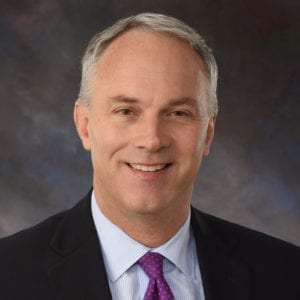Who is a member?
Our members are the local governments of Massachusetts and their elected and appointed leadership.

Mayor Jon Mitchell
New Bedford officials plan to use up to $5 million in federal coronavirus recovery funds to encourage the production of more affordable apartments in the city and create a healthy mix of housing options for neighborhoods.
Budgeting funds from the American Rescue Plan Act, New Bedford will grant between $250,000 and $2 million through its Housing Expansion Initiative to each qualified developer that agrees to produce rental units for people earning 60% or less of the area median income. Developers have until May 16 to apply for funding, and the city is hoping to get the funds out the door by the end of May, said Mayor Jon Mitchell.
New Bedford already has a significant number of income-restricted units and a housing policy that encourages development of both market-rate and affordable housing, Mitchell said. The ARPA funding will help the city in its efforts to achieve a mix of new developments, he said.
“We’d like to see a balance of restricted and unrestricted units, so the ARPA funds give us an opportunity to accelerate projects that are in keeping with our overall policy,” Mitchell said. “The ARPA regulations require cities to fund income-restricted units. Through this program, we’re obviously following the regulations, but we’re also trying to emphasize mixed-income and mixed-use properties, which we believe is our sweet spot.”
Overall, New Bedford is getting $64.7 million in direct ARPA funds, and another $16.7 million through Bristol County, Mitchell said. The Housing Expansion Initiative is one of several ARPA-funded programs the city currently has in motion. Other initiatives include the Enhanced Facade Improvement Program for small businesses; the Capital Costs for Childcare, Out-of-School Time Care and Early Childhood Education Program for nonprofit child care organizations; and a Small Business Assistance Program.
The Housing Expansion Initiative falls under the ARPA category of addressing negative economic impacts that people experienced during the pandemic. To qualify for the funding, developments must be shovel-ready, have an overall project cost of at least $5 million, demonstrate a need for the ARPA assistance, and fit into one of three categories: mixed-income projects that include both affordable and market-rate units, mixed-use projects, or adaptive reuses of vacant properties.
While the projects must include new units for households at or below 60% of area median income, the program doesn’t set a percentage of affordable units that each project must have. Mitchell said the applications will be scored individually based on how well they achieve a balance of income-restricted and market-rate units.
The initiative will focus solely on rental housing, Mitchell said. To qualify, a one-person household will have an income limit of $35,340, while a four-person household will have an income cap of $50,460. In terms of rents, an eligible income-restricted, one-bedroom apartment would have a limit of $818 a month, with utilities included; a two-bedroom apartment would be capped at $1,012; and a three-bedroom apartment could cost no more than $1,259 per month. The city will continue to monitor compliance with income and rent restrictions going forward.
City officials said this use of ARPA funds will benefit both residents and the city overall.
“It’s no secret that we have a serious housing shortage in our community, especially housing that’s affordable for our working and middle-class families,” said City Council President Ian Abreu in a statement about the initiative. “Programs like these coming to fruition, thanks to the American Rescue Plan Act funds, will go a long way to ensure that no family or resident, especially our children and seniors, will ever go homeless here in the city of New Bedford.”